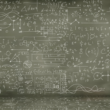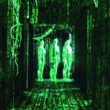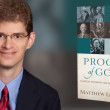Why an Infinite Regress Among Proper Causes is Metaphysically Impossible
by Dr. Dennis Bonnette
Filed under Philosophy

Presuppositions, definitions, and purpose: This article presupposes the metaphysical first principles of non-contradiction, sufficient reason, and causality, which I defended earlier in a Strange Notions article. By the principle of sufficient reason, I mean that every being has a sufficient reason for its being or becoming. This principle is recognized by virtually all mankind as essential to reality’s intelligibility. By causality, I mean that every effect (a being whose sufficient... Read More
What Is the True Understanding of Causality?
by Dr. Dennis Bonnette
Filed under Philosophy

The classical proofs for God’s existence, particularly St. Thomas Aquinas’ Five Ways, employ the notion of causality – both efficient and final. In that context, many misunderstandings arise concerning the true metaphysical meaning of the principle of causality. This article will assume the validity of the metaphysical first principles of non-contradiction and sufficient reason, which were established as true in my previous Strange Notions article on the first principles – and... Read More
Are Metaphysical First Principles Universally True?
by Dr. Dennis Bonnette
Filed under Philosophy, The Existence of God

Today, certain lines of attack against classical proofs for God’s existence, such as St. Thomas Aquinas’ Five Ways, seek to undermine foundational metaphysical first principles such as causality, sufficient reason, or even non-contradiction.1 Such attacks employ, for example, claims that (1) David Hume’s critique of causality is definitive, (2) the existence of the cosmos is simply a “brute fact,” needing no explanation, and (3) modern physics shows that the principle of non-contradiction... Read More
Are We Living in the Matrix?
by Joe Heschmeyer
Filed under Culture

On Monday, the New Yorker suggested that “the bizarre finale to Sunday night’s Oscar ceremony brought to mind the theory—far from a joke—that humanity is living in a computer simulation gone haywire.” Lest you think that such a self-evidently absurd theory is a mere cry for attention from a dying publication, the idea that we’re all in the Matrix was actually seriously debated at the American Museum of Natural History’s 2016 Isaac Asimov Memorial Debate. The list of those... Read More
Why Does the Universe Exist? Atheist Physicist Sean Carroll Answers…
by Brandon Vogt
Filed under Christianity and Science, Cosmology

I have to admit, when I first opened Sean Carroll's new book, The Big Picture: On the Origins of Life, Meaning, and the Universe Itself (Dutton, 2016) I immediately flipped to chapter 25, titled "Why Does the Universe Exist?" For many thinkers, ancient and modern, this is the philosophical question: why is there something rather than nothing? Your answer to this question drives your answers to most other big questions, including those about God, meaning, morality, and more. So I was... Read More
Why Wouldn’t God Perform More Miracles?
by Karlo Broussard
Filed under The Problem of Evil

If God is a God of miracles as theists claim, then why doesn’t he perform more to stop evil? I must admit this is one question I’ve wrestled with in solidarity with my atheist friends. My initial response is to recall the words of the prophet Isaiah: “For my thoughts are not your thoughts, neither are your ways my ways, says the LORD” (Is. 55:8). While I acknowledge this as true, it leaves me dissatisfied. As a Christian I believe, with St. Paul, that God “works for good with... Read More
Proofs of God: An Interview with Dr. Matthew Levering
by Brandon Vogt
Filed under Interviews, The Existence of God

In his newest book, Proofs of God: Classical Arguments from Tertullian to Barth (Baker Academic, 2016), leading theologian Matthew Levering presents a thoroughgoing critical survey of the proofs of God's existence for readers interested in traditional Christian responses to the problem of atheism. Beginning with Tertullian and ending with Karl Barth, Levering covers twenty-one theologians and philosophers from the early church to the modern period, examining how they answered the critics... Read More
Why Miracles Are Not Incompatible with Science
by Karlo Broussard
Filed under Christianity and Science

Skeptics argue that miracles are impossible because the laws of nature are necessary. A miracle, they argue, involves a violation of a law of nature. But the laws of nature cannot be violated. Therefore, miracles must be impossible. One modern skeptic of repute who argues this is Richard Dawkins. In his book The God Delusion, he says, “[M]iracles, by definition, violate the principles of science” (83). Dawkins and other modern skeptics derive this argument from philosophers in the... Read More
Is It Reasonable to Believe in Miracles?
by Karlo Broussard
Filed under Belief

Should I believe in miracles? This question doesn’t pertain to whether I should believe in this miracle or that miracle. It has to do with whether I’m rationally justified in believing in miracles as such. David Hume's Wisdom for the Wise The eightenth-century Scottish skeptic philosopher David Hume argued the wise man should not believe in miracles. The basis for his assertion was what might be called the “repeatability principle”—evidence for what occurs over and over (the... Read More
Reason’s Bunker: The One-Sidedness of the Modern Mind
by Martin Dober
Filed under Man

St. Justin Martyr, a second century philosopher and Christian apologist, once reflected that Platonic philosophy added “wings” to his mind.1 He was referring to the way that Plato’s theory of ideas freed his reason, allowing his thoughts to rest not just upon the sensible things of this earth, but rather permitting him to contemplate the unseen yet essential realities that undergird and give meaning to all of existence. Justin is a witness to the way that truth can lift our minds... Read More






